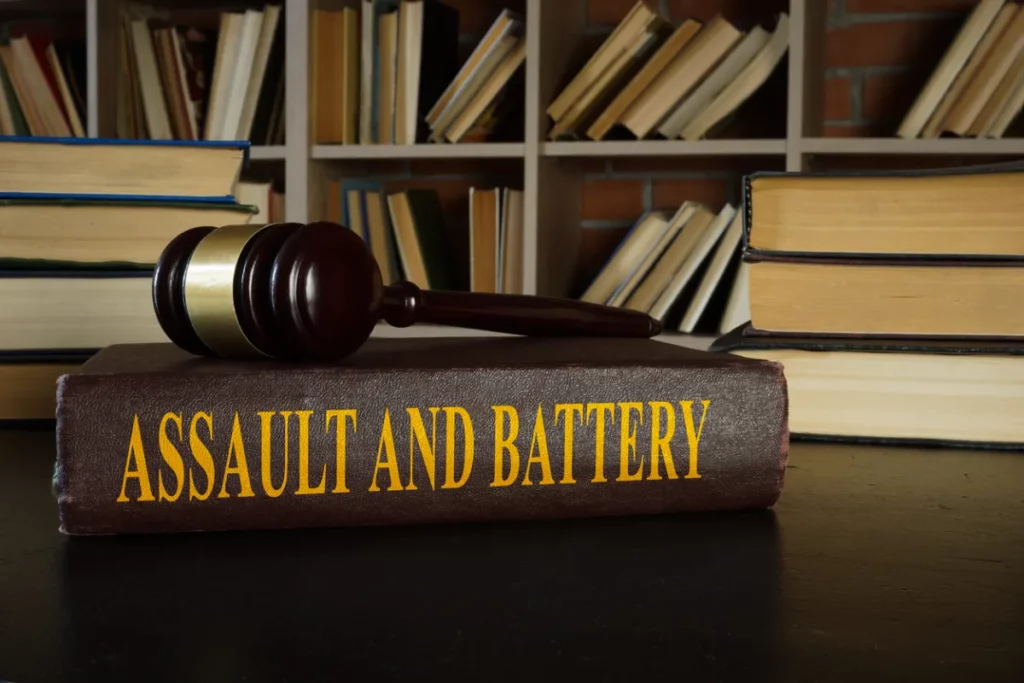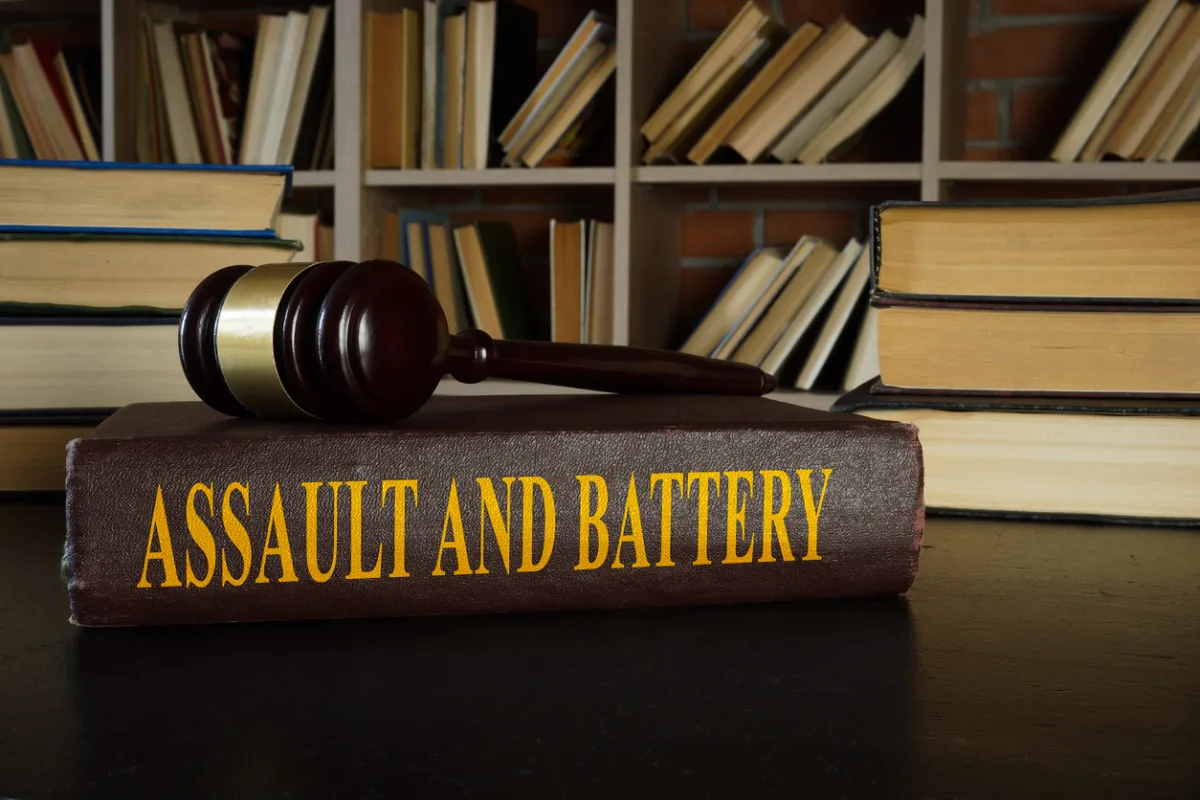
A simple battery charge in Georgia is a serious matter that can have long-lasting implications on your life. While simple battery is considered a misdemeanor offense, the consequences can include jail time, fines, and a permanent criminal record, all of which can significantly impact your future. In this article, we will delve into the various aspects of a simple battery charge, including its legal definition, potential penalties, and effective defense strategies.
Types of Battery in Georgia
In Georgia, battery offenses are categorized into three main types: simple battery, battery, and aggravated battery. Understanding the differences between these charges is crucial, as each carries different penalties and legal implications.
Simple Battery
Simple battery is the least severe form of battery in Georgia. According to Georgia law, simple battery occurs when a person intentionally makes physical contact with another person in a manner that is either of an insulting or provoking nature or causes physical harm.
- Insulting or Provoking Nature: This refers to physical contact that is meant to insult or provoke the other person, even if it does not cause physical harm.
- Physical Contact: Any physical contact that is insulting or provoking can result in a simple battery charge.
Battery
Battery is a more severe offense than simple battery. It involves intentionally causing substantial harm or visible bodily harm to another person. Visible bodily harm can include substantial bruises, cuts, or other injuries that are evident without medical examination.
- Visible Bodily Harm: This refers to injuries that are visible, such as bruises or cuts, which may not require medical attention but are apparent to an observer.
- Substantial Harm: Injuries that cause significant pain, discomfort, or long-lasting effects can elevate a charge to battery.
Aggravated Battery
The most severe form of battery is aggravated battery. This charge applies when a person intentionally inflicts great bodily harm or uses a deadly weapon during the offense. Aggravated battery is considered a felony offense and carries much harsher penalties, including lengthy prison sentences.
- Great Bodily Harm: This involves injuries that cause permanent disfigurement, loss of a body part, or a substantial risk of death.
- Deadly Weapon: The use of a deadly weapon during the commission of battery elevates the charge to aggravated battery.
Understanding these different types of battery charges is essential for anyone facing battery allegations in Georgia. If you or someone you know is charged with simple battery or any related offense, it’s crucial to consult with a criminal defense lawyer to understand your legal options.
Simple Battery
As the most basic form of battery, simple battery occurs when a person commits an offense by making physical contact with another person in a way that is intended to insult, provoke, or harm them. While this charge is often viewed as less serious than battery or aggravated battery, it can still lead to significant legal consequences.
What Constitutes Simple Battery?
Under Georgia law, simple battery is defined by the following actions:
- Intentionally Makes Physical Contact: The accused must have deliberately made physical contact with the victim, regardless of whether the contact caused harm.
- Insulting or Provoking Nature: The contact must have been of an insulting or provoking nature. This can include actions such as slapping, shoving, or spitting on the victim.
- Physical Harm: In some cases, simple battery can involve minor physical harm, such as a bruise or a scratch, though this is not always necessary for a charge.
Examples of Simple Battery
Examples of simple battery include:
- Slapping someone during an argument.
- Pushing someone in a crowded area.
- Spitting on a person is an act of disrespect.
In each of these cases, the person commits the offense by making physical contact that is intended to insult, provoke, or harm the victim.
Penalties for Simple Battery
The penalties for a simple battery charge in Georgia can vary based on the circumstances of the offense and the relationship between the parties involved. While simple battery is generally classified as a misdemeanor offense, certain factors can elevate the charge to a high and aggravated misdemeanor, which carries more severe penalties.
Misdemeanor Offense
Simple battery is treated as a misdemeanor offense, which can result in the following penalties:
- Jail Time: A conviction for simple battery can lead to up to one year in jail. The exact duration of jail time will depend on the severity of the offense and the judge’s discretion.
- Fines: The court may impose fines of up to $1,000 for a simple battery conviction.
- Probation: Instead of, or in addition to, jail time, the court may impose a period of probation, during which the offender must comply with certain conditions, such as community service or attending anger management courses.
High and Aggravated Misdemeanor
In certain situations, simple battery can be elevated to a high and aggravated misdemeanor. This occurs when the offense is committed against specific individuals, such as family members, past or present spouses, or police officers performing their official duties.
- High and Aggravated Misdemeanor: A high and aggravated misdemeanor is a more serious charge that can result in increased jail time (up to one year), higher fines (up to $5,000), and more stringent probation conditions.
- Family Violence Battery: When simple battery is committed against a family member, it may be classified as a family violence battery, which carries additional penalties and may result in mandatory counseling or a restraining order.
The consequences of a simple battery conviction can be severe, impacting your criminal record, reputation, and future opportunities. If you are facing a simple battery charge in Georgia, it is essential to seek legal advice from an experienced criminal defense attorney.
Defense Strategies for Simple Battery
Defending against a simple battery charge requires a thorough understanding of the law and the specific circumstances of the case. Several defense strategies can be employed to challenge the charges and potentially achieve a favorable outcome.
Self Defense
One of the most common defenses against a simple battery charge is self-defense. If the defendant can demonstrate that they used force to protect themselves from an imminent threat of harm, the court may dismiss the charges.
- Reasonable Doubt: In cases of self-defense, the burden is on the prosecution to prove beyond a reasonable doubt that the defendant was not acting in self-defense. If the defense can introduce sufficient evidence to create reasonable doubt, the charges may be dropped.
- Unlawful Force: If the alleged victim used unlawful force against the defendant, and the defendant responded with appropriate force to protect themselves, this may serve as a valid defense.
Lack of Intent
For a simple battery charge to stand, the prosecution must prove that the defendant intentionally made physical contact with the victim. If the defense can show that the contact was accidental or unintentional, the charges may be dismissed.
- Accidental Contact: If the contact was accidental, such as bumping into someone in a crowded space, this may not meet the legal definition of simple battery.
- Lack of Intent: The defense may argue that there was no intent to harm, insult, or provoke the victim, thereby undermining the prosecution’s case.
False Accusations
In some cases, individuals may be falsely accused of simple battery. This can occur in situations involving domestic violence, disputes between past or present spouses, or altercations involving multiple parties.
- False Allegations: The defense may investigate the motives of the accuser and present evidence to show that the allegations are false or exaggerated.
- Witness Testimony: Testimony from witnesses who were present during the incident can be crucial in disproving the accusations.
Insufficient Evidence
Another effective defense strategy is to challenge the evidence presented by the prosecution. If the evidence is weak, inconsistent, or based solely on hearsay, the defense can argue that there is not sufficient evidence to convict the defendant.
- Video Evidence: In some cases, video footage from security cameras or bystanders can provide clear evidence that contradicts the prosecution’s claims.
- Witness Testimony: Reliable witnesses who can testify that the defendant did not commit the alleged act can help create reasonable doubt.
Legal Consultation
If you are facing a simple battery charge in Georgia, it is crucial to seek legal representation from a criminal defense lawyer. A qualified attorney can assess the details of your case, develop a strong defense strategy, and advocate on your behalf in court.
- Free Consultation: Many law firms offer a free consultation to discuss your case and provide initial legal advice. This is an excellent opportunity to explore your options and determine the best course of action.
- Strong Defense: A skilled attorney can help you build a strong defense, challenge the evidence, and work toward reducing or dismissing the charges.
Conclusion
Understanding the nuances of a simple battery charge in Georgia is essential for anyone facing such allegations. While simple battery is often considered a misdemeanor offense, the consequences can be severe, including jail time, fines, and a permanent criminal record. However, with the right legal defense, it is possible to challenge the charges and protect your future.
If you or someone you know is facing a simple battery charge or any related offense, it’s crucial to seek legal advice from an experienced criminal defense lawyer. A strong defense can make all the difference in achieving a favorable outcome and safeguarding your rights.
For more information on criminal defense in Georgia or to schedule a free consultation, please contact us today. Our team of experienced attorneys is here to help you navigate the legal system and fight for your rights.


